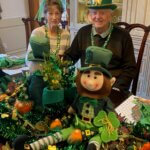Four Great Books on Aging and Elder Care
Longevity is generally better than its alternative. But when the body or especially the mind wears out, caring for yourself or finding someone else to do it for you can impoverish you in short order.
These books are all in their own way essential reading. Few of us are prepared for the financial and emotional complexities of managing the last several years of our lives. But as we live longer, drain what may prove to be inadequate retirement savings and lean harder on already strained government programs, we’ll probably find ourselves facing ever more challenging questions and unfortunate compromises.
“The 36-Hour Day,” by Nancy L. Mace and Peter V. Rabins
What does it feel like to care for someone with Alzheimer’s, other dementias or memory loss?
The tips in Chapter 16 for people shopping for long-term care residences of various sorts are particularly comprehensive. You’ll finish thinking that this is a selection process that shouldn’t happen within 24 hours of a hospital discharge but should instead unfold over weeks, and you’ll be right.
“Being Mortal,” by Atul Gawande
The book is a good introductory text in part because of the sobering statistics. By age 85, 40 percent of people have some form of dementia. There are 350,000 falls each year that lead to broken hips. Once you’ve got a fracture there, there’s a 40 percent chance you’ll end up in a nursing home and a 20 percent chance you’ll never walk again.
A good geriatrician, one hopes, will school you in stability to lessen the chance of taking a spill. But good luck finding one, since their numbers have declined even as studies show that people do better over all under their care. Think your family will be there to steady you or at least check in? According to Dr. Gawande, half of the very old among us live without a spouse, and we’re having fewer children than ever before.
“It is not death that the very old tell me they fear,” he writes. “It is what happens short of death.” But we don’t think about it enough, and we talk about it even less. Having read this book, I won’t make that mistake or let anyone close to me make it either.
“A Bittersweet Season,” by Jane Gross
The reward for living a reasonably long life, according to Jane Gross’s mother, was getting to “rot to death” rather than merely dying.
Ms. Gross takes us on a no-holds-barred tour through the years that she and her brother spent caring for their late mother. She is unafraid to admit all the mistakes she made out of sheer ignorance and how often even the most high-functioning adult children simply do not know what they do not know.
The book explains the financial side of her mother’s care — including her eventual qualification for Medicaid — plain as day.
Women often lose out twice or more in the aging derby, first when they take on disproportionate responsibility for their aging parents and then again when they outlive their spouses in old age. Ms. Gross’s raw honesty about her feelings about all of this — often fair and sometimes not, by her own admission — makes this book mandatory reading for any man with a sister who wants to be thoughtful about planning for aging parents.
“Being My Mom’s Mom,” by Loretta Anne Woodward Veney
There is no sugarcoating the number of physical and emotional challenges that come with aging, so it’s clear why Ms. Veney’s upbeat memoir of the years she has spent caring for her mother, Doris Woodward, who has dementia, is so appealing.
She’s also practical about doing whatever works to make her mother happy. While Ms. Woodward had no taste for McDonald’s in her younger years, she found it soothing for whatever reason once her decline began. Often, the two of them would stay there for hours.
Finally, Ms. Veney devotes a chapter to humor. Laughing with someone afflicted with dementia can, in her view, be life-affirming in a period when joy may be elusive. So we hear of her mother’s confusion over her new memory foam slippers. How was something on her feet going to help her brain? she wondered.
At the end of one particularly challenging day out, the pair stopped for dessert. When they arrived back at her mother’s group home where she had lived for more than a year, she did not recognize it though she did thank her daughter for the treat. “I just don’t remember where I live,” Ms. Woodward told her daughter. “But of course I remember the ice cream.”




